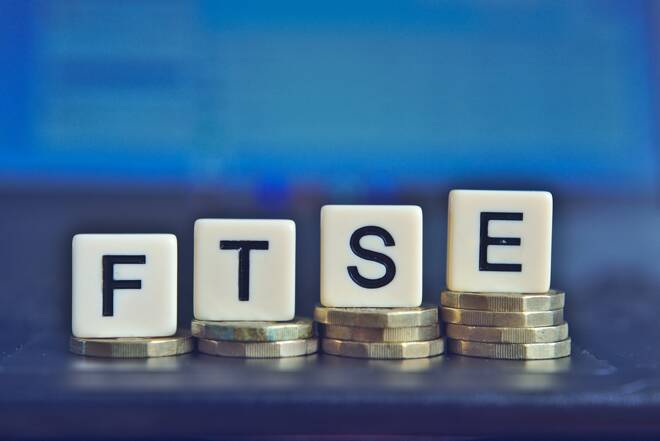FTSE Index Underperforms as it Fights for The 7,000 GBP Level
By:
It looks like the recent rally in the FTSE 100 index might be over for now as technicals are starting to look bearish. That’s mainly due to the GBP and its current situation.
According to the BBC, almost 33 million people in the UK have received at least one dose of their coronavirus vaccine, and more than 10 million have had a second dose. The government plans to vaccinate the rest of the adult population – another 21 million people – by the end of July.
UK Unemployment Better than Expected
Earlier on Tuesday, the UK claimant count change for February came in better than expected, with the unemployment rate falling to 4.9%, versus the expected rise to 5.1%, compared with January’s 5.0%. Following the release, the sterling was trading higher, with the GBPUSD pair rising above the important 1.40 level again.
Upcoming UK Data
Later in the week, traders will also focus on inflation indices, due Wednesday, with retail sales being released on Friday.
The official CPI (Consumer Price Index) inflation is expected to rise to 0.8% year-on-year, up from 0.4%. That would still be way below the US inflation of 2.6%. Inflation is forecast to accelerate from 0.1% to 0.3% monthly.
Retail sales are projected to improve notably from February’s levels as some shops were allowed to open in March. However, it will take a very long time for the retail sector to shun all the losses suffered throughout the pandemic completely.
Both events will most likely cause volatility in the GBPUSD pair and the FTSE index as well.
Last but not least BoE (Bank of England) Governor Andrew Bailey speaks about diversity in market intelligence at the BoE’s virtual event on Wednesday. Since his speech is not about monetary policy, traders will most likely ignore it.
The FTSE 100 and GBP Effect
Usually, there’s a negative correlation between the GBP and the FTSE 100 index, meaning, if the sterling strengthens, the FTSE index tends to weaken and vice versa.
Therefore, if the GBPUSD continues moving above the important 1.40 level, it could further undermine the FTSE index.
Technically speaking, it looks like the bulls are having trouble holding the psychological level of 7,000 GBP. Moreover, it seems like there’s a false bullish breakout with a quick bearish reversal. If the index closes below previous highs near 6,960 GBP, it could be a bearish signal for the FTSE 100.
The next major support could be found at the 6,800 GBP level, where strong bids are expected to defend the medium-term uptrend.
Alternatively, the strong resistance remains near the 7,000 GBP level and afterward at around the current cycle highs of 7,050 GBP. Should the FTSE rise above that level, the long-term uptrend would be confirmed.
FTSE 100 Weaker Against Other Indices
The British index has been the worst performer lately in comparison to other EU and US indices. It’s still well below its pre-pandemic highs, while the German DAX and US benchmarks are way above their pre-pandemic tops.
Probably, the reason is that the response by the BoE has been the weakest, and the UK lockdown might have been one of the hardest.
On the other hand, should the situation improve, the FTSE index might start outperforming other indices as it has more than 10% potential to reach pre-COVID highs.
For now, the long-term sentiment seems bullish, and dips are expected to be bought. However, as mentioned earlier, the short-term outlook is not that positive.
We think that equity indices are due for a correction as they are way overextended above their moving averages, which usually leads to a correction toward the 50 or 200-day moving averages. Those declines will most likely be used to buy the dip as investors enter the market at better prices.
For a look at all of today’s economic events, check out our economic calendar.
About the Author
Peter Bukovcontributor
Peter comes from a background in corporate finance which began in 2013 when he completed the Corporate Finance Program at the University of Economics in Bratislava. He’s been actively involved in the market sector since 2008 and got his hands-on experience in trading in 2011.
Advertisement
